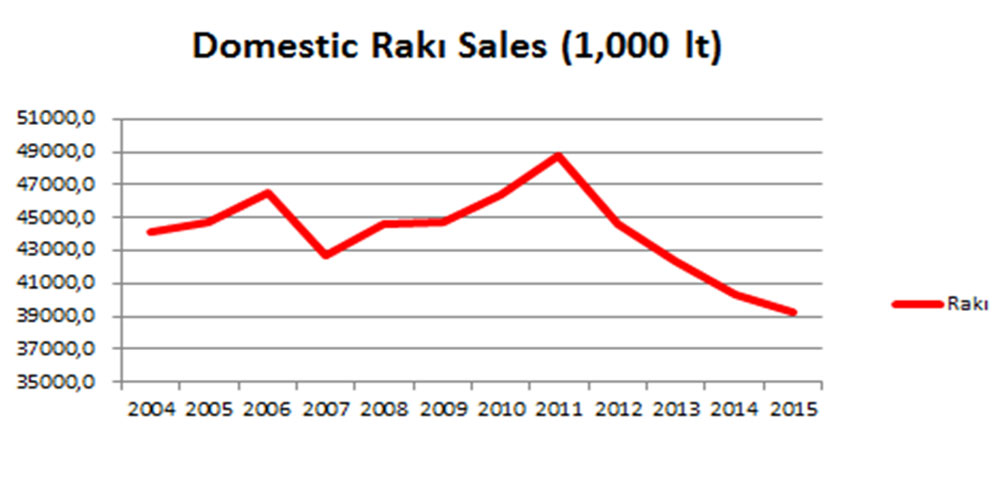Rising tax on traditional spirit raki depresses sales
Turks like to joke that the best you can get from a mix of grapes, sugar and aniseed is raki. Until 2003 raki was manufactured in Turkey exclusively by the state. However, one year after the currently ruling party AKP took office (2002), the monopolist producer was privatized, allegedly in preparation for Turkey’s accession to the EU. Nothing has come of this yet, but one side effect is that suddenly dozens of raki brands of varying alcohol content, taste and aroma hit store shelves.
Although Turks on average consume only 1.5 litres of pure alcohol annually, per capita consumption of raki still came to 0.5 litres in 2015, according to the Turkish association of Traditional Spirits Producers.
The loss of the monopoly meant that the Turkish government had to seek revenues elsewhere. What it did was simply to hike taxes on the popular spirit. In 2002, a 0.7 litre bottle of raki cost about USD 4.50. In January 2018, after the latest tax hike, its price was USD 28.00, with the tax load amounting to 70 percent of the retail price.
In recent years, disgruntled consumers who felt the pinch, took the usual way out: they went after moonshine raki, made from local ethyl alcohol, which they flavoured themselves at home.
This had unfortunate consequences. People died or went blind from moonshine raki served in cheap restaurants. Yet, this did not put an end to this suicidal practice. Sales of ethyl alcohol continued to rise, which in turn reduced the government’s forecasted tax revenues.
After banning alcohol advertising in 2013, the government has now taken an even more drastic measure to kill sales of raki and of ethyl alcohol. While hiking the tax on regular raki, it decreed that ethyl alcohol sold in stores must be flavoured with a “bitter-tasting substance”. The intention is obvious. Moonshiners shall be out of business and cheap raki cease to be available.
For consumers, there is one way around this, though: they can buy Turkish raki in Germany, where they will be charged the equivalent of USD 17.00 per bottle in supermarkets.
Tax hikes eat into sales of Turkish raki

